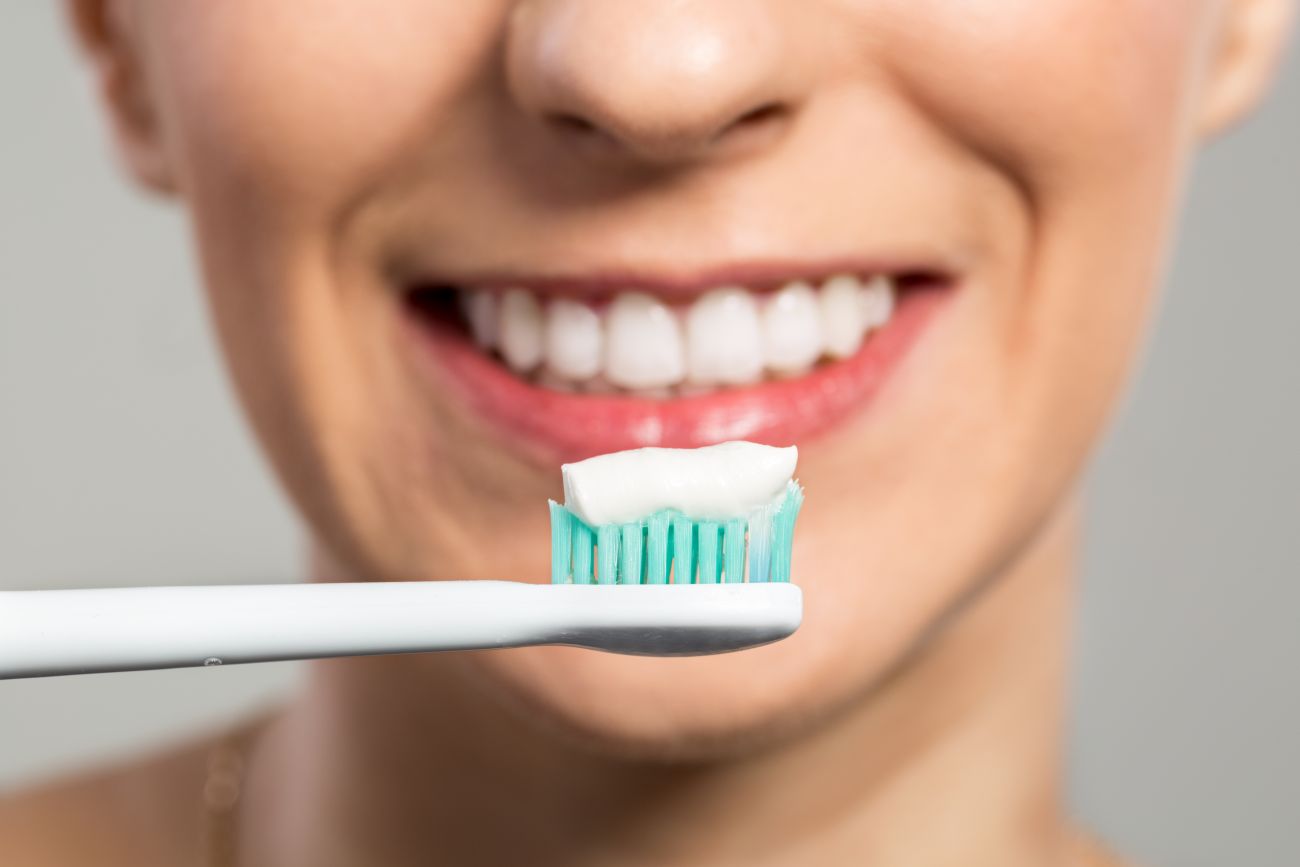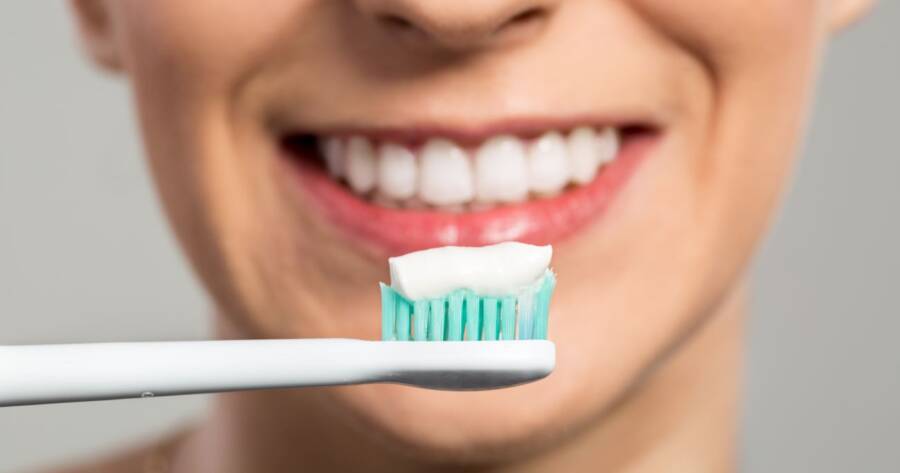Toothpaste is one of the top must-have toiletries for people of all ages. Also called dentrifice, it may come in gel, paste, liquid, or powder form with different additives included such as fluorides, abrasive agents, anti-sensitivity, anti-plaque, and anti-tartar substances. The added ingredients boost the cleaning and polishing functions of toothpaste while providing anti-cavity and stain-lifting coverage, along with acting as dental whiteners and oral deodorizers.
The American Dental Association Seal of Acceptance on toothpaste products can be obtained by manufacturers who can prove to the ADA’s Council on Scientific Affairs that the product meets safety standards as well as effectiveness guidelines for tooth decay reduction. All toothpaste products with the ADA Seal of Acceptance are fluoridated. The ADA requires proof in the form of clinical studies conducted on humans and laboratory studies indicating fluoride levels, efficiency of fluoride release, and absorption in both normal and compromised dental enamel.
Typical ingredients in toothpaste include the following:
- Food-grade abrasives to help remove food debris and some surface stains. These abrasives may include calcium carbonate, magnesium carbonate, dehydrated silica gels, hydrated aluminum oxides, silicates and phosphate salts.
- Fluoride for enamel protection and remineralization.
- Humectants such as glycerol, glycol, and sorbitol. These ingredients prevent toothpaste from drying.
- Flavoring agents to improve taste such as saccharin. The ADA will not certify a toothpaste with ingredients that include sugar and other substances that may promote tooth decay.
- Thickening agents and binders for a stable shelf life for toothpaste products. These substances include mineral and seaweed colloids, natural gums and synthetic cellulose.
- Detergents such as sodium lauryl sulfate or sodium N-lauroyl sarcosinate. Detergents create the foaming action and act as surfactants.
Extensive studies are conducted in ADA labs to verify the formulation and efficacy of toothpastes with fluoride. The U.S. Food and Drug Administration regulates toothpastes with fluoride, including the presence of other active ingredients and all effectiveness claims, but no testing is performed by this agency. Having said that, here are some of the toothpaste products that are highly recommended by dentists and other dental health experts.
Crest Pro-Health Original Flavor in Clean Mint
The type of fluoride used in the toothpaste can affect its effectiveness. Crest is the only brand that uses stannous fluoride, which is just as effective in enamel protection as the more commonly used sodium fluoride. However, stannous fluoride has the distinction of working double-duty as an antibacterial agent, which means Crest Pro-Health toothpaste also acts on plaque and gingivitis while eliminating bacteria that contribute to bad breath and cavity development.
This line of Crest toothpaste has also been shown to help whiten the teeth over a period of prolonged and regular use. This Crest product may help alleviate mild cases of tooth sensitivity. With the ADA Seal of Acceptance, you are assured that the product has been subjected to extensive testing by the ADA and complies with the FDA requirements for fluoridated toothpastes.
Crest 3D White Luxe Glamorous White
Discoloration and teeth staining is a common issue even among the younger ones, but much more so in adults. Discoloration may be due to certain types of food, drinks, medication, alcohol, and nicotine from smoking. For generally healthy teeth with surface stains, there is Crest 3D White Luxe Glamorous White.
This toothpaste offers all the cleaning, cavity protection, and polishing advantages of premium toothpastes, but added peroxide-based ingredients act on surface stains. Evidence of stain lifting action may be visible in a few days, but Crest claims that about 95 percent of stains can be eliminated in the first five days of use. This product may also protect against stain build-up especially when used in conjunction with other Crest whitening products. Consumers are cautioned to consult with dental professionals regularly as sustained use of teeth whiteners may lead to sensitivity.
Sensodyne Pronamel Toothpaste
Enamel is the surface covering that helps to protect teeth from erosion caused by chewing, crunching, grinding, and biting. It is a hard substance, but constant pressure can cause cracks or chips over time. Enamel insulates the teeth from the effects of extreme temperature changes in food and beverages as well as the interaction of potentially harsh chemicals and saliva.
Sensodyne Pronamel toothpaste has been found to be one of the least abrasive toothpastes with enamel-protecting ingredients. It contains five percent potassium nitrate, which is a very mild numbing agent that will help with tooth sensitivity. This toothpaste is safe even for teeth with very thin enamel. Acid erosion from food ingredients is a common problem even among young adults. Even healthy food choices such as fruit and fruit juice, teas, and lemon-flavored sparkling water can affect tooth enamel. Regular use of Sensodyne Pronamel will strengthen and protect tooth enamel to minimize hypersensitivity.
Colgate Total Advance Deep Clean Toothpaste
The Colgate Total line of toothpaste is touted as whole-mouth cleaner and surface protectant. The ingredients reduce bacteria in the teeth, tongue, gums, and cheeks. It can also help prevent plaque and gum disease while strengthening the enamel surface. The germ-fighting formula, containing sodium fluoride with sodium ion and Triclosan, works for 12 hours even after eating and drinking.
In addition, Colgate Total Advance toothpastes also contain silica for effective tooth stain removal and prevention of future stains from setting in. Available in different flavors, regular use yields cleaner and brighter teeth while also ensuring fresher-smelling breath, resulting from reduced bacterial levels in the mouth.
The Natural Dentist All-In-One Fluoride Toothpaste
For a natural alternative, the Natural Dentist All-In-One Fluoride Toothpaste is among the highly recommended products by dental providers. This toothpaste was developed by a dentist in Woodstock, New York. It contains no alcohols, no sodium lauryl sulfate, and no artificial flavors or preservatives.
The main ingredient is still sodium fluoride, but the humectants, bonding agents and other inactive ingredients are plant-based. These ingredients include vegetable glycerin, aloe vera gel, echinacea, goldenseal, grapefruit extract, calendula, xanthan gum, and citric acid.
When choosing a toothpaste for younger children, pay attention to recommendations of the manufacturer and your dental provider. Children need to be closely supervised when using toothpaste, and many of these products may be restricted for children who are six and younger.
Additionally, the effectiveness of any toothpaste depends heavily on the efficiency of your tooth brushing practices. Consult your dental provider if you have concerns about ingredients in your toothpaste and for tips on maximizing the benefits of using toothpaste products.
 didesign021 / shutterstock.com
didesign021 / shutterstock.com


